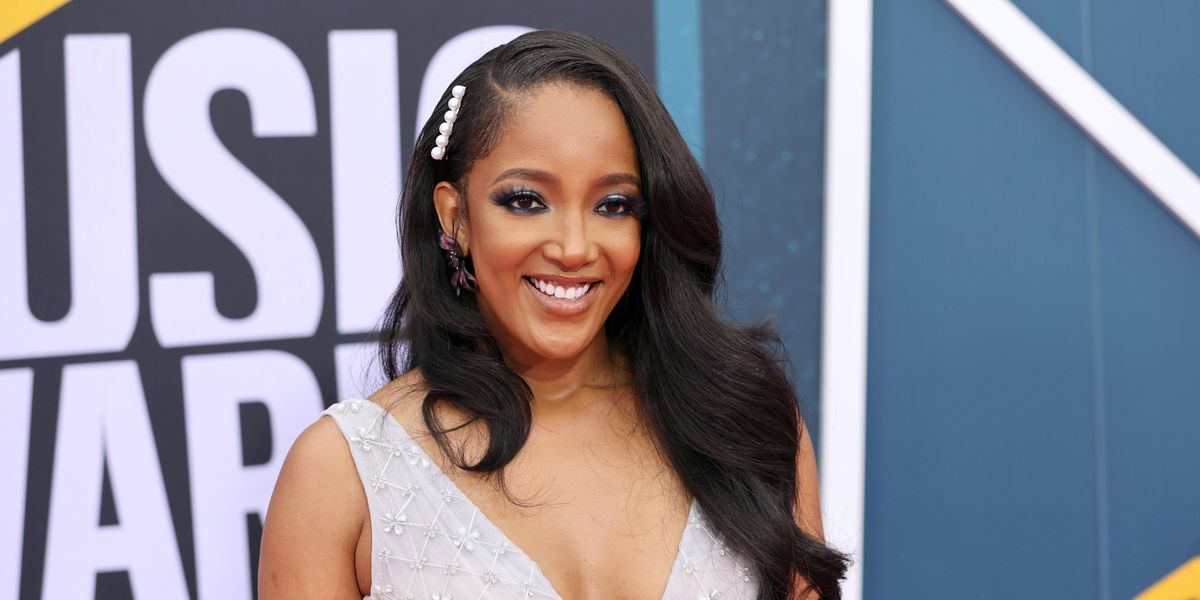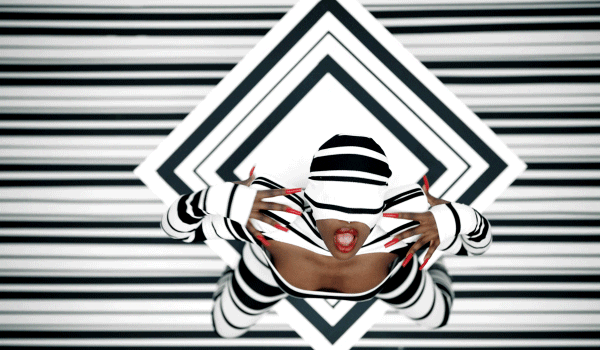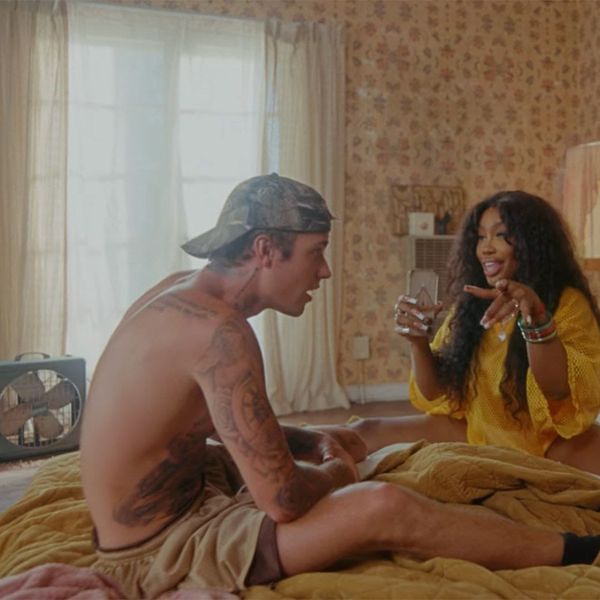
Black Music Month: How These Artists Are Taking Up Space Outside Of Hip-Hop And R&B
June is Black Music Appreciation Month and it is a time to reflect on and celebrate the contributions made by Black musicians. While former President Jimmy Carter is credited for introducing Black Music Month in 1979, (President Biden signed a recent proclamation recognizing June as Black Music Appreciation Month) what many people may not know is that it was co-created by veteran radio and TV personality Dyana Williams, Kenny Gamble from the legendary songwriting and production duo Gamble & Huff and DJ Ed Wright.
All three were involved in the Black Music Association and launched a campaign called “Black Music is Green” which is where Black Music Month sprouted from. Dyana opened up about that monumental time for Tidal.
“The Black Music Association petitioned President Jimmy Carter to host a reception at the White House acknowledging the contributions of the Black music business,” she said. “That took place on June 7, 1979, on the South Lawn of the White House, where Gamble and I sat with President Carter and his wife, Rosalynn. Dexter Wansel was the musical director, with MFSB providing the music for Sara Jordan Powell, Billy Eckstine, Evelyn “Champagne” King, Andraé Crouch, and Chuck Berry. That was the first official Black Music Month celebration at the White House.”
Black music has come a long way since the 1970s. While Black artists have continued to be innovators in music, their accomplishments are often overlooked especially if it doesn’t fit a specific genre. However, there are Black artists who refuse to be boxed in and are using their music as a form of expression, individualism, freedom, and resistance in spaces that have historically been reserved for non-Blacks.
From country star Mickey Guyton to electric pop singer Dawn, these artists are pushing the boundaries on how Black music is represented and doing a damn good job.
Mickey Guyton
Mickey Guyton has made a name for herself as one of the few Black artists in country music and with that comes some hardships. With the country music industry being historically white, the “Lay It On Me” singer has faced racism from the genre’s fans and has even addressed it such as the time she responded to someone saying they didn’t want her kind in country music.
“Started off 2022 with a good ole batch of racism. I show you this so you guys continue the fight for equality and love and acceptance,” she wrote.
However, the mother of one hasn’t let racism and discrimination rain on her parade. Her single “Black Like Me” which came out during the wake of George Floyd’s death earned Mickey a Grammy nomination in 2020 which made her the first Black female solo artist to receive a nod for a country category. She was also the first Black country artist to perform at the prestigious award show.
Dawn Richard
Most people may be familiar with Dawn Richard from the groups Danity Kane and Dirty Money but since the singer went solo, she has been making music on her own terms. The “Frequency” artist has been making waves in the electronic music space as one of the few Black artists in the genre. In an interview with Kyle Meredith, Dawn opened up about how her skin color initially kept her in a box.
“As a solo artist when I did my albums, they kept calling me alternative R&B as a Black girl because I kept doing music that wasn’t traditionally R&B,” she said. “But because of the skin color that I had, I couldn’t get out of that genre. They put experimental R&B; they had to put that next to it. And what I found was though I didn’t care what I looked like, I wanted to do the music that I did, my color was limiting me and society was limiting me for that. So my entire trajectory has been to choose to say no. We belong here.”
She also shed light on the history of electronic and dance music and how it derived from Black culture although now it is mostly white men in that space. The New Orleans beauty has released six solo albums so far with her last project titled Second Line being a nod to her New Orleans roots.
Nova Twins
The Nova Twins are taking over the punk rock scene in the UK and eventually the world. The duo, which is composed of Amy Love and Georgia South, come from multicultural backgrounds that influence their music. Amy is half Iranian and half Nigerian, and Georgia is half Jamaican and English and they have made it their mission to change the way Black women are viewed through their music.
The “Antagonist” artists spoke with NME about speaking up in spaces where they typically aren’t celebrated. “Being black women doing punk music is political, so yes. ‘Devil’s Face’ touches on Brexit, ‘Bullet’ speaks about sexism, but ‘Athena’ is completely fictional and mythological,” Amy said. “We called it ‘Who Are The Girls?’ because we didn’t always feel heard or accepted making the type of music we do, looking the way that we do. It’s definitely challenging and there is a stigma attached to it.”
The group is gearing up to release their second studio album Supernova in June 2022.
Willow
Willow Smith’s music trajectory has been an interesting one that finally saw the 21-year-old find her voice. She released “Whip My Hair” at just nine-years-old and it became an instant hit. However, the success became too demanding for the daughter of Will Smith and Jada Pinkett Smith which caused her to rebel and step away from music at that time. As she got older, she began following in her mother’s footsteps and found herself creating punk music. The “emo girl” singer released her pop-punk album lately I feel EVERYTHING in 2021.
In an interview with NPR, Willow explained why Black artists should enter other genres and be empowered by that decision. “Black youth get taught that we belong in R&B and rap spaces, and we don't do the research,” she said. “We're not given the truth. There's no way that we would be able to follow that example, because we don't even know it exists.”
“I want to tell all the Black and brown, young girls that they can scream, they can growl, they can cut their hair, scoop it to the side, dye it. They can do whatever they want. They can make any kind of music and do it better than anyone they've seen. I want to give girls like me that confidence and that feeling of power and beauty. That's the only reason why I do anything.”
Let’s make things inbox official! Sign up for the xoNecole newsletter for daily love, wellness, career, and exclusive content delivered straight to your inbox.
Featured image by Jason Kempin/Getty Images for CMT
This article is sponsored by Hulu.
UnPrisonedhas returned for its highly anticipated second season, delving deeper into the complex dynamics of the Alexander family.
The series premiere comes a year after its debut season garnered rave reviews from fans and critics and earned record-breaking ratings for Hulu's Onyx Collective brand. UnPrisoned's success can be attributed to its raw, relatable themes and comedic appeal.
Inspired by creator Tracy McMillan's life, the show follows Paige (Kerry Washington), a therapist and single mother whose life takes an unexpected turn when her father, Edwin (Delroy Lindo) --who was released from prison-- moves in with her and her teenage son, Finn (Faly Rakotohavana).
Throughout UnPrisoned's first season, viewers witnessed how Edwin's incarceration deeply affected Paige's life and relationships. In the series, Paige unpacks her trauma through interactions with her inner child and her online followers. Meanwhile, Edwin is overcoming specific struggles with his own past that led to his life of crime, including a dysfunctional upbringing and his mother's arrest. As the Alexanders attempt to reconcile, new challenges arise.
This new season promises to further explore their unconventional family dynamic. Here are several compelling reasons why season two of UnPrisoned should be on everyone's watchlist.
The Alexander Family Life Is Still In Shambles
UnPrisoned's second season resumes where the series left off, with Paige grappling with the fallout from her troubled therapy practice and Edwin navigating life independently after moving out. Meanwhile, Finn faces his own challenges. The teenager is battling anxiety and seeking information about his father—a topic Paige avoids discussing.
The Alexander Family Are Attending Therapy To Resolve Their Underlying Issues
Amid the chaos in their lives, the Alexander family decides to mend their bond by confronting their past traumas. They seek professional help and attend therapy sessions with a “family radical healing coach,” played by John Stamos, a new cast member. This collective effort aims to unravel the complexities of their shared history and strengthen their relationships.
The process of unraveling each character's internal conflicts and their potential impact on future relationships may clash with Paige's textbook therapy approach. While Paige is used to being in the therapist's seat in both career and family, this forces her into the unfamiliar role of a patient during therapy sessions. This shift would compel her to look in the mirror and try a radically different approach.
The Alexander Family Learned A Big Lesson During A Therapy Session
In therapy, the Alexanders are tasked with addressing their individual traumas to salvage their remaining relationships. One of the family therapist’s eccentric suggestions was an exercise involving a family wrestling match. During this session, Paige faces tough questions about her refusal to share information about Finn's father.
While it's unclear whether this scene is reality or fantasy, the image of the family duking it out in the ring certainly makes for hilarious yet compelling television.
Paige Tries Dating Again Following Failed Relationships
Amid her life's chaos, Paige decides to step back into the dating field. However, her many attempts have left her with mixed results. The dating apps have turned out to be a fail, and an outing with her ex Mal (Marque Richardson), who is also her father's parole officer, doesn’t go quite as expected after he brings an unexpected guest – his new girlfriend.
The situation takes an awkward turn when Mal's new partner learns why the former couple split, partly due to Paige's self-sabotage.
UnPrisoned Is A Perfect Balance Of Comedy And Drama
As a dramedy, UnPrisoned takes a comedic approach to its heavy subjects. The show takes us on a ride with Paige's dating misadventures and navigating a friendship with her ex.
Other lighthearted moments include Edwin's attempts at CPR based on online videos and, of course, the antics of the Alexander family's unconventional new healing coach.
The second season of UnPrisoned is now available on Hulu.
UnPrisoned | Season 2 Trailer | Hulu
Feature image courtesy
Tubi has been gaining popularity due to its free sign-up and a vast selection of series and films. According to Deadline, the FAST (free ad-streaming television) service has seen a 14.7% growth from May and now has similar numbers to Disney+. So while many people have joked about Tubi having low-budget movies, the numbers don't lie.
In fact, I was one of those people who didn't get the appeal of Tubi, but the more I watched it, the more I enjoyed the content. They have some of our favorite TV series, such as Scandal and Star, as well as big films like the Fast and Furious franchise and cult classic Love & Basketball.
Tubi even has its own original movies and series that are just as entertaining. But while Tubi is on the come up, some of the low-budget movies and hood movies are still a must-watch. From Tubi originals to the hood movies, we've put together a list of shows and movies to add to your watchlist.
Cinnamon
Cinnamon is an original Tubi movie that stars Hailey Kilgore (Juke from Power Book III: Raising Kanan), Damon Wayans, and Pam Grier. It's a love story gone awry after a robbery turns deadly, and a young couple faces many challenges to make it out alive.
The Dirty D
The Dirty D is one of the first things I watched on Tubi, as many people highly recommended it. It's a series set in a Detroit club, and it has all the drama you can think of. Murder, drug dealing, cheating, greed, and more.
Black Men Don't Cheat
In this film, a young woman grapples with the death of her husband while also discovering his secret life, which puts her in danger.
Mother May I
This movie fully captivates the overbearing mother. However, the ending will shock you as she goes a little too far.
The Stepdaughter
When a young girl moves in with her dad and his new wife, a series of unfortunate events occurs. This Tubi original will keep your attention with every turn.
These Men For Everybody
These Men For Everybody is a film that highlights the tangled web of friendships and relationships and how you can't trust anybody.
Best Friend
What happens when your best friend is obsessed with you? This movie, which stars Serayah and Marques Houston, answers this very question and takes us on a ride in the process.
What's Done After Dark
What's Done After Dark shows us that everything isn't always what it seems. The twist at the end is a real doozy.
Let’s make things inbox official! Sign up for the xoNecole newsletter for daily love, wellness, career, and exclusive content delivered straight to your inbox.
Feature image by rez-art/ Getty Images









